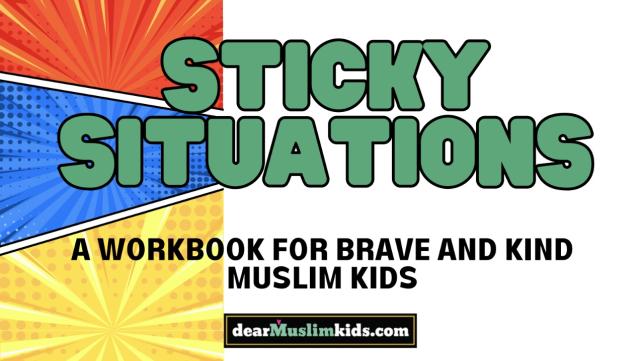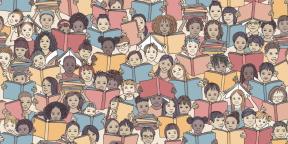
Quickly changing laws and norms related to sexuality and relationships make it difficult for Muslim parents to put off having tough conversations about LGBTQ issues with their children. Elements of the LGBTQ lifestyle are virtually unavoidable, depicted in books, magazines, newspapers, television shows, and commercials, and in many parts of the U.S. and Canada, in school curricula for children starting as early as pre-K and progressing through high school. In public spaces, grocery and retail stores, and various community activities there are pride symbols and also proud members of the LGBTQ community.
Parents who already have open and honest conversations with their children may have already treaded into this territory. Others, who usually shy away from controversial topics or whose children rarely ask questions or share information, are starting to ask themselves important questions. How do we begin the conversation? And how early do we need to start? What is the best approach?
Alhamdulillah, the first thing you need to know is that you don’t need to go it alone. There are good resources to draw upon that help both parents and children tackle these challenges. One curriculum worth noting is called Sticky Situations. The free package was developed by “Aunty Hiba” Masood (aka Drama Mama) and provides parents and educators with comprehensive content and support to navigate discussions about LGBTQ issues with children of all ages. The series contains a parent/educator guidebook, six videos, and a 40-page workbook.
The newly released package was a labor of love by Aunty Hiba who is an educator, award-winning author, and mother of four who is no stranger to engaging Muslim kids in learning opportunities through her popular dearMuslimchild.com and Drama Mama Productions platforms. She also was a popular host for Sound Vision’s Colors of Islam Club, online Islamic studies classes for children 8-12 years.
Aunty Hiba has recently taken to social media to promote the package and the importance of parent engagement on LGBTQ challenges.
“This is THE challenge of our times, it’s what Muslim kids need. It is very possible this issue is going to divide the ummah but choose whose side you want to be on. This is not only your responsibility as a parent, as a believer, but it is also literally your job as a Muslim educator to teach the truth of Quran and Sunnah.”1
About the Parent/Educator Guidebook
The 17-page Navigating Sticky Situations: A Guide for Muslim Parents on LGBTQ Challenges is correlated to the workbook for children and is filled with practical advice for approaching conversations about this topic with sensitivity. Parents are cautioned to consider their child’s age, developmental stage and maturity, and exposure to these issues when discussing any of the material in the series. The guidebook is divided into nine sections including:
- How to Use the Resources
- Choosing your Words
- Sticky Situation Resource List
- Building an Islamic Worldview
- The Fundamentals of Human Creation
- Are Muslims Haters?
- Avoiding Rainbows
- What If Scenarios
- Being Brave and Kind
Each section contains further detail in the form of helpful suggestions, relevant examples, and specific precautions and recommendations for children of various ages. It is especially helpful to have suggested dialogue and use of specific terms. Addressing the goal of building an Islamic worldview, there is a reminder that a solid Islamic foundation begins with teaching our children the simple story of creation and our world. And there is a very nice comparison chart that shows the dramatic difference between a Muslim Worldview and Some Other Worldviews.

Following this line of thinking about worldviews allows for a coherent discussion of identity.
“In Islam, we don’t consider any feelings and desires as our whole identity, especially our intimate desires. Newer ideologies link feelings and desires to identities, and this is dangerous because when we say our religion forbids actions linked to certain feelings/desires, other people may feel like their entire existence is being threatened, even though no threat is being intended or communicated.”
The guidebook addresses popular criticism that Muslims who reject support for homosexuality are haters and that Muslims should at least stand with members of the LGBTQ community as allies. There is even a section on how to deal with your child’s love of rainbows. Real-life scenarios are just that, describing unexpected situations that a family may happen into that warrants discussion, like seeing two men kissing or seeing a lesbian couple getting married on TV. The guidebook provides possible dialogue for three age groups: 4-8 years, 8-12 years, and 13+ years.
The final point is about the importance of teaching our children to be both brave and kind.
“Being brave means being strong and confident in what we believe, even if others don't understand or agree. It means standing up for our faith and not being afraid to be different. It means showing our kids that they have the power to speak what they know is the truth, stick with their beliefs, and live life as a strong and awesome Muslim kid.”
But bravery alone is not enough. Kindness is a special ingredient! It has the power to change hearts and minds. By being kind to others, even when they may not understand us, we can show them the beauty of Islam.”
About the Kids Workbook
One of the primary messages conveyed throughout the Workbook for Brave and Kind Muslim Kids is the principle that “Islam teaches us how to think about things.” And there are three important principles emphasized related to the LGBTQ topic:
- We know that the Quran and Sunnah is the best, most permanent way to help us think about all things.
- We learn about the difference between boys and girls, men and women, from the Quran and Sunnah.
- We learn about marriage and the rules around it, from the Quran and Sunnah.
The 40-page workbook starts with a lesson about the creation of humans and our world. And that sets the stage for a lesson on building an Islamic worldview. Accompanying videos, ranging from 3-5 minutes, feature a monologue from Aunty Hiba and are designed to engage the viewer with the lesson in a language that is easy for children to understand. She is on her A-game when talking about the importance of holding fast to Allah’s rules, seeking His pleasure, and encouraging children to stick to the truths we know in the Quran and Sunnah with “clarity, conviction, and confidence,” even if others are following a different path.
The workbook is also filled with stories and a variety of worksheets that reinforce the lessons. For example, in the lesson called “Two Dads,” two friends are working on an art project when one reports that there’s a girl in her class that has two dadas and “NO MOM!” Professor Hums overhears the conversation and pulls up a chair to bring in lessons about our nafs or strong desires, about the pull of Shaytan’s whispers, and about the story of Prophet Lut, peace be upon him. The accompanying worksheet is filled with questions about marriage throughout Islamic history and qualities the reader might pray for in your future spouse.
Additional videos are focused on specific topics. One is devoted to Boys & Girls, Men & Women. Aunty Hiba reminds us that the purpose of our life in this world is to worship Allah and that there are roles, rights, and responsibilities assigned to each gender. She describes the importance of marriage between a man and woman as a “happy and healthy life goal.” She also discusses the current state of affairs in which others wrongly focus on deciding one’s own gender identity, marrying anyone at all, and pursuing happiness as the main job in life.
Additional videos review “sticky situations” using an animated Muslim Kids reporter segment that listens in on discussions that children are having about LGBTQ challenges. In these vignettes, children try to make sense of what they see around them - a boy talking about being in the “wrong” body, a classmate with “two dads,” and a boy who dresses like a girl. Enter Aunty Hiba and Uncle Hums to the rescue to address the scenarios and put things into proper perspective, drawing on the guidance of the Quran and the Sunnah of the Prophet Muhammad, peace and blessings be upon him, as the best of examples.
Aunty Hiba counsels parents to keep in mind three tips when using the Sticky Situations resource:
- Keep the right mind frame.
- Personalize to your family.
- Use a multiformat approach.
Added to these suggestions is another important reminder. Make a point to speak WITH rather than at your children and make time to LISTEN to what they have to say.
To get your own copy of the free curriculum, visit Sticky Situations.
May Allah assist you in providing your children with sound Islamic guidance and a good role model, and keep you and your family firmly on the Straight Path. Ameen.
End Notes
1 Sticky Situations: Helping Muslim Kids Navigate LGBTQ - MuslimMatters.org
Zahirah Lynn Eppard is the managing editor of the Muslim Home parenting newsletter project. As Sound Vision’s Director of Religious Education, she has also spearheaded the production of more than 400 online classes serving children ages 3-12 in the Adam’s World and Colors of Islam Clubs. Eppard has also worked in the field of education as a teacher, homeschooler, and Islamic school principal, as a marital and crisis intervention counselor, and as a lobbyist, and social justice activist. She lives with her husband, children, and grandchildren in Maryland








Add new comment